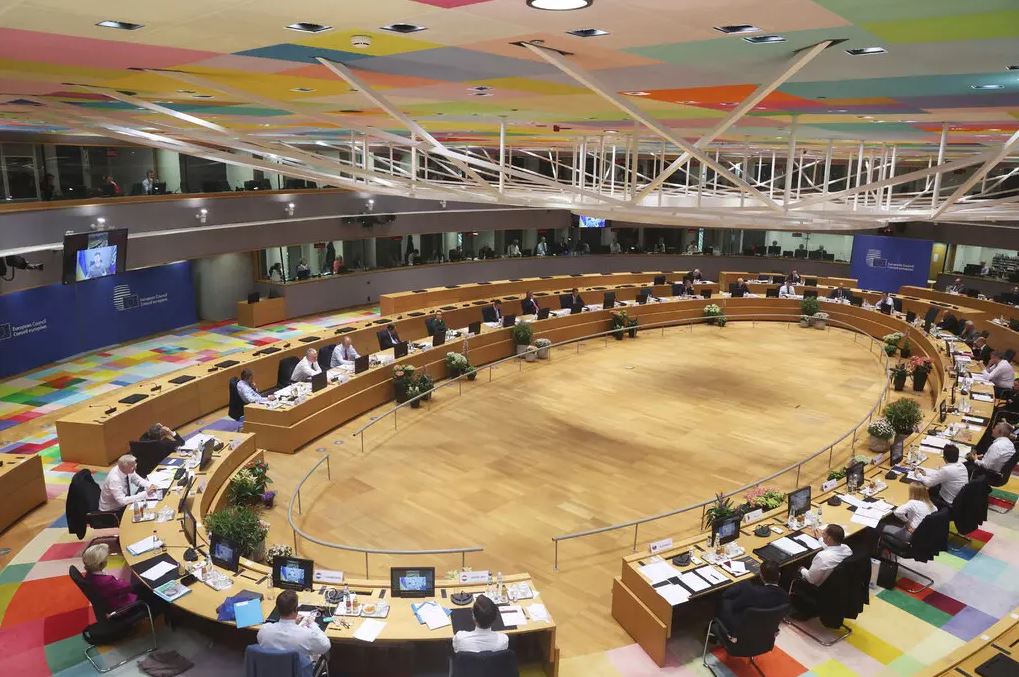On Monday, the European Union reached a consensus to prohibit the majority of oil imports from Russia. This is the hardest economic punishment that has been inflicted on Russia so far for its invasion of Ukraine, and it is also perhaps the greatest sacrifice made by Europe itself.
The agreement is the most recent and far-reaching demonstration that over the course of more than three months of war, in reaction to mounting Russian aggression and atrocities, European leaders have grown willing to take steps that they considered to be too extreme when the invasion initially began. They have already blocked the assets of the Russian government, shut off the access of Russian banks to global financial networks, and sent modern weapons to Ukraine.
The discussion over an oil embargo has also brought to light the possible fragility of the European Union, in the same way that the demands of Sweden and Finland to join NATO have demonstrated that there are gaps within that alliance. Diplomats have expressed optimism that these disagreements can be overcome, but they have also been careful to point out that the unity that the United States and its allies have shown up to this point in their opposition to Russia is not assured.
It was believed that Slovakia, the Czech Republic, and Germany, all of whom also get oil from Russia through pipeline, would commit to weaning themselves off of that supply. On the other hand, it is not expected that Hungary would make any such commitment.
Turkey has blocked the admittance of Finland and Sweden into NATO, despite the fact that NATO is also a consensus-based organisation. This is because Finland and Sweden have been sufficiently worried by Russia’s attack on Ukraine to renounce their long-held neutrality. Diplomats from the West are of the opinion that Turkish President Recep Tayyip Erdogan, who has been just as contentious a partner to NATO as Mr. Orban has been to the European Union, will coerce the alliance into making concessions, but in the end, he will give in.
On the battlefields of the eastern Donbas region, where Russia is focused on seizing more territory, the most intense combat is around the battered and adjacent cities of Sievierodonetsk and Lysychansk. These cities are among the most important remaining pockets of Ukrainian control and are located in close proximity to one another. Following several weeks of shelling, Russian forces have fought their way into “the northeastern and southeastern outskirts” of Sievierodonetsk, according to a statement released by the Ukrainian Ministry of Defense. The statement also noted that Russia had channelled even more military equipment from Russia into the Donbas.
According to Ukrainian and French authorities, as well as his employer, the television news station BFM TV, a French journalist was murdered on Monday in Lysychansk when a shell detonated near the evacuation vehicle he was riding in. The explosion occurred near the bus in which he was riding. According to Serhiy Haidai, the Ukrainian governor of the Luhansk area, who said that the shell was shot by Russian troops, the journalist, Frédéric Leclerc-Imhoff, sustained a fatal shrapnel wound to the neck. According to Haidai, the shell was fired by Russian forces.
A vehicle explosion in Melitopol resulted in the injury of two humanitarian workers, according to the regional government that was selected by the Kremlin. The administration described the incident as “a terrorist act aimed at undermining the calm existence of the city.” People have taken to the streets in Melitopol to demonstrate against the takeover by Russian military, which has resulted in the local authorities being abducted and replaced.
In addition, during the first several weeks of the conflict, Russian offensives in the north that were directed towards Kyiv, the nation’s capital, and Kharkiv, the country’s second-largest city, were hopelessly mired in combat. Because Moscow decided to focus its efforts on the Donbas region, at least temporarily, it gave up on the other operations, and the Ukrainians were able to recapture some of the area they had lost.
The failure of those offensives and the resistance in Mariupol contributed to a shift in Russian tactics toward a slower, more grinding approach, with little apparent concern for civilian casualties or physical destruction. This approach was adopted despite the fact that there was no apparent concern for civilian casualties or physical destruction.

